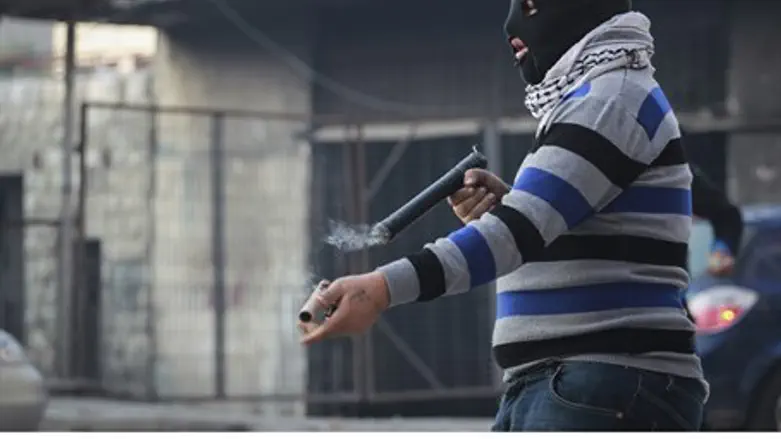
Following calls for the banning of the import of firecrackers because of the current deteriorating security situation in Jerusalem, Economics Minister Naftali Bennett on Thursday implemented a compromise measure, barring firecrackers from Israel – but for only 60 days. The ruling applies to “category 2” firecrackers, which are legal for use with licenses.
Many of the recent attacks by Arabs against police and civilians in Jerusalem unrest have included firecrackers, which are legal for use in Israel. In order to prevent the attacks, the Internal Security Ministry has been investigating the possibility of limiting or banning altogether the import of firecrackers – to the chagrin of companies that do the importing.
On Wednesday, several of the companies in the business wrote to Internal Security Minister Aharonovich asking him not to allow ban firecrackers, saying they stood to lose a great deal of money. Yaron Mor, head of the Israel Firecracker Importers Association wrote in a letter to Aharonovich that the unrest in Jerusalem had engendered a sense of public panic, and the media and politicians were looking for a scapegoat – in the form of firecrackers.
There have been numerous articles in the Israeli media in recent days highlighting how Arab rioters have been using firecrackers to attack officers in Shuafat and other areas. The attackers wrap up the firecrackers in a cloth or small jug and throw it at officers. Several officers have been injured in these attacks.
Watch - Arab rioters shoot firecrackers at Israeli police on Temple Mount, Nov. 5:
Mor said that the firecrackers members of his organization imported were all legal, and were used in entertainment and industry.
“All the procedures for importing are done legally, and the firecrackers are sold only to those who have licenses or authorizations to use them.”
Furthermore, he noted that attempts to ban them would not have any effect on ongoing violence. If there were no firecrackers, Arabs would find other items to abuse and use against Israelis. “There is no need to close the gates of the country to firecrackers,” he said.
Concurring was Uriel Lynn, head of the Tel Aviv Merchants' Association. “We should not ban firecrackers because of public security issues. That would be the easy and populistic way to fight this problem - but it would be wrong,” he said, as it would unfairly punish businesspeople who had done nothing wrong.
On Thursday, Bennett said that the ban would be in place for only 60 days, during which time the Ministry would try to figure out ways to allow importation of firecrackers, while ensuring they did not get into the hands of terrorists.
“I am generally opposed to such bans – after all, we are not going to ban the importation of cars because they kill people in car accidents, and we will not stop importing knives because they are used to stab Israelis,” said Bennett. “A total ban on firecrackers is not the answer. I believe the solution will come only with an increase in our supervision and determined work by police to prevent rioting,” he added.